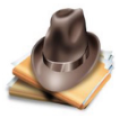Im trying to figure out a correspondence between the image in your mind and the image that you see, he says, sitting on the edge of his sofa, cup of coffee in hand. And he thinks he might have come close with his Postcards from Nowhere series. These large-scale collages (on show this weekend as part of Photo London) are giant copies of vintage postcards that are themselves created from shredded old cards. For Muniz, they are an attempt to capture the way we recall any place in our minds as a composite of other places weve been to or imagined. Theres a great German word, he says, Bildflud flood of images.
 Detail from Piccadilly Circus (2015)
Detail from Piccadilly Circus (2015)
One of the new works shows London, a city Muniz describes as being a heap of colourful puzzle pieces that dont all fit. It zeroes in on what he sees as the citys epicentre, Piccadilly Circus (above). From a distance, the picture has the textural richness of an oil painting. Up close, however, you see the hundreds of tiny photographic shards, all details from vintage postcards, that went into creating it.
Boxes of these old cards fill Munizs studio, bought on eBay or snapped up at auction. He works with assistants who cut and separate the interesting things to create, for example, a box full of clouds, ready to be plucked out. We have rooms here that are mausoleums for orphaned pictures, he says, estimating his collection of cards to number more than 100,000. And its kind of sad, he adds, chuckling. An image is only alive when somebodys looking at it.
 Shanghai (2014)
Shanghai (2014)
Muniz grew up in Sao Paulo, in a poor family. At 18, he got a job designing billboards, working, as he mock-grandly puts it, in the black market of semiotics. Then, in 1983, as he was walking to an industry gala, wearing a dinner jacket for the first time in his life, a fight broke out in front of him. He intervened and was shot in the leg. The gunman, fearing Muniz would press charges, paid him a significant sum to keep quiet, money that Muniz used to buy a ticket to New York. There, in a studio borrowed from a friend, he began his new life as a sculptor. His big break came in 1997 with Sugar Children, a series of portraits of the children of St Kitts sugar plantation workers made by sprinkling white sugar on black paper.
Upstairs, in an airy white room, he shows me a collage in progress, a postcard collage of Mount Rushmore. Its a moderately sized version of a piece that will eventually be metres long. He works on this scale before blowing up a photograph of the collage to create the final, giant work. The pictures take months to make and often require lateral thinking. In this case, hes having some trouble with one of the famous presidential profiles. Im trying, he says, jabbing a finger at Jeffersons jawline, to get this guy to not look like a monkey.
 Stonehenge (2015)
Stonehenge (2015)
Beside the canvas are more boxes. He flicks through one filled entirely with vintage postcards from Arizona, some written and postmarked, others still blank. Muniz laughs as he recalls one acquaintance marvelling at how he managed to get the sky to be the same colour in all of his pictures. He holds up a fistful of old American postcards: in every one the sky is the exact same colour, a saturated, Technicolor turquoise.
My parents never set foot in a museum or gallery before I had a show, says Muniz. I am always conscious, without sacrificing any intellectual element, of making [my work] accessible. This way, anybody can find something in it, a child, or an art critic, or the guy who cleans the museum.
You sense, though, that he takes most satisfaction in delighting the child. My work is layered, he says earnestly, before breaking out in a grin, like The Simpsons!
Photo London is at Somerset House, London WC2 (020 7759 1170; photolondon.org ), until Sunday 24 May 2015. Muniz is showing as part of Ben Brown Fine Arts
 Detail from Stonehenge (2015)
Detail from Stonehenge (2015)






An interesting interpretation of scenic locations in England and China in a "different" approach to presenting the pictures
Different but beautiful
Enjoy
It is beautiful/interesting. I like it.
Kavika
Glad you liked them
I agree the form and presentation is a little unusual, but they are beautiful
R W
That is a great idea
We have traveled a lot in Europe, South America and North America and have pictures, post cards and other memorabilia that fill boxes, that could be a great way to make something nice out of it that is a memory catcher of our past trips.
Thanks for the feedback